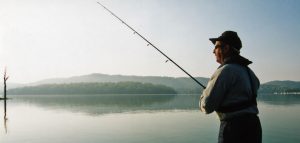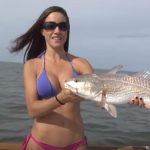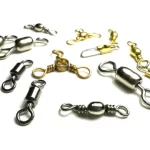Many anglers shy away from winter fishing, but for those willing to brave the cold, it offers unique rewards. With fewer competitors on the water and the chance to refine fishing skills, the winter months can become a favorite time to cast a line—whether in sunny Florida or chilly Virginia. Here’s how to make the most of winter fishing adventures.
Stay Safe and Warm
Preparation is key to enjoying winter fishing safely. Neoprene waders, insulated gloves, and a thermal cap are essential. Layering clothing ensures warmth, even if it feels bulky. A wading staff can prevent falls, which are uncomfortable in summer but dangerous in winter.
Staying dry isn’t enough—take regular breaks to warm up. Sip hot coffee or retreat to a heated vehicle. Prioritize safety: stay upright, stay dry, and stay aware of your limits.
Choose the Right Water
Tailwaters are ideal for winter fishing due to their stable temperatures. Trout, for instance, thrive in water around 50°F, a rarity in winter unless near a dam-regulated tailwater. Notable options include:
- Nantahala River, Bryson City, NC
- Jackson River, Hot Springs, VA
- South Holston River, Bristol, TN
- White River, Lakeview, AR
These fisheries remain productive even in frigid conditions, offering reliable spots to target winter trout.
Sleep In and Fish Smart
Unlike summer, early mornings aren’t necessary in winter. Fish become more active as water temperatures rise, so aim for late morning through mid-afternoon. This strategy works in both freshwater and saltwater.
In Florida marshes, for example, redfish move to shallow, dark-bottomed areas to absorb heat. Targeting these spots during warmer parts of the day increases success.
Slow Down Your Approach
Winter fishing demands patience. Fish become lethargic in cold water, so rapid retrieves and aggressive movements rarely work. Slow everything down: casting, retrieving, and stripping. Precision and finesse are more effective than speed.
As water temperatures rise slightly, fish activity increases, but overall, a deliberate approach yields better results.
Monitor Water Temperatures
While air temperature affects comfort, water temperature dictates fish behavior. Trout prefer temperatures in the 50s, while largemouth bass are more active in the mid-60s to 70s.
Rather than rigidly following these ranges, focus on trends. Rising temperatures in winter signal feeding activity, whereas dropping temperatures usually mean sluggish fish. In summer, the opposite applies: anglers typically look for cooling trends.
Enjoy the Experience
Winter fishing offers a unique challenge and the reward of solitude. With the right preparation and mindset, it’s an opportunity to hone skills and enjoy quieter waters. Braving the cold can lead to some of the most memorable fishing experiences of the year.






